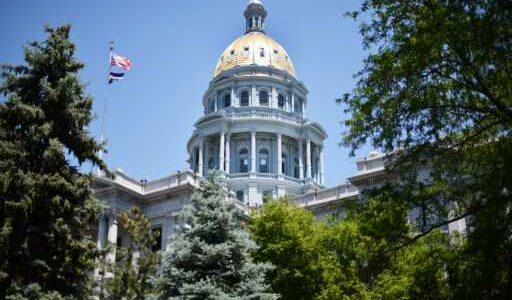
Inflation will peak this year and outpace wage growth, Colorado analysts project
Consumers in Colorado, as around the country and world, are up against steeper increases in the price of goods and services than have been observed since the 1980s, legislative analysts told state lawmakers Thursday.
Average consumer prices were 7.9% higher in January of this year than they were in January of 2021, the analysts reported. Inflation in the energy and transportation sectors was particularly steep — at least 21%, in each case — while prices for food, housing, apparel and other necessities rose at above-average levels.
The analysts expect inflation of 7.1% on average in Colorado through 2022, and 3.8% in 2023. The figure is based on data from the Denver-Lakewood-Aurora metro, which in normal years experiences inflation of about 2.5%. Analysts expect inflation here to get back to normal by 2024.
Lauren Larson, budget director for the state, worries still about risks to that projection.
“There’s a lot of uncertainty around what’s going to happen with inflation, what’s going to happen with (gross domestic product),” she said.
Latest inflation figures “certainly give me pause for concern,” said Rep. Julie McCluskie, a Dillon Democrat and chair of the legislative Joint Budget Committee.
“I don’t know that I anticipated 7%. Now that we’re looking at this number, we have to be very prudent and deliberate about our commitments in the budget for the year and next year,” she said.
Analysts stressed Thursday that Russia’s war on Ukraine provides yet more uncertainty.
Nationally, the analysts reported, wages are gaining for all income levels. But that’s being offset by inflation, for now. For example, the lowest quarter of earners has seen 5.8% median wage growth over the past 12 months, according to the Federal Reserve, and that’s simultaneously a steeper rise than has been observed in at least eight years and also not enough to keep up with increased costs for goods and services.
Remarking on wage growth, particularly for the poorest workers, state Sen. Chris Hansen, a Denver Democrat and vice chair of the Joint Budget Committee, observed what is “essentially a reduction in real pay,” in the context of heightened inflation.
This was all detailed during the quarterly economic forecast presented to the committee, a panel of six lawmakers largely responsible for writing the state government budget. The March forecast is arguably the most important of the four the committee receives each year, as it’s the last update before lawmakers pass a budget.
The legislature is expected to approve the 2023-24 state budget, in the range of $40 billion, in April. Lawmakers plan to maintain a 15% reserve in the coming budget in order to account for uncertainty ahead.
Budget-writing legislators have been preparing for months and the latest forecast doesn’t change much about how much money they’ll have to spend. That’s because the Taxpayer’s Bill of Rights — the voter-approved, conservative fiscal device unique to Colorado — restricts the degree to which the state budget can grow, through a “cap” that requires the state to refund taxpayers in strong economic years, like this one.
Even as numbers fluctuate somewhat, that activity has lately all taken place above the cap, meaning slight adjustments to projected refunds to taxpayers and little impact on overall state government spending. As of Thursday’s forecast, analysts still believe taxpayers will see record refunds, including $2 billion this fiscal year and $1.6 billion next fiscal year.
“I am thrilled with the Taxpayer’s Bill of Rights,” said state Rep. Kim Ransom, a Douglas County Republican and Joint Budget Committee member, after the forecast presentation. “Just look at what it’s done for our state. It’s prevented us from growing, … and voters have told us how they want to run the government: lean and mean. They don’t want us to have huge levels of growth in the size of government.”
Democrats on the committee don’t see it that way. The state budget is only flush now in a relative sense, and Colorado continues to underfund key services such as education and aid to those most in need, they argue. Hansen and other committee Democrats have said they think the legislature should figure out a way to keep some of the money that is now set to be refunded.
Gov. Jared Polis is one Democrat who hasn’t gone there. He’s a cheerleader for Taxpayer’s Bill of Rights refunds, and on Thursday he celebrated the economic forecast and highlighted employment figures.
“(F)aster, stronger and ahead of other states,” he said.
January figures show the state posted its lowest unemployment rate — 4.1% — since just before the COVID-19 pandemic set in. That figure is roughly on track with the national average, and Colorado is one of the top states in the country for overall labor participation, analysts said.
Source: Read Full Article